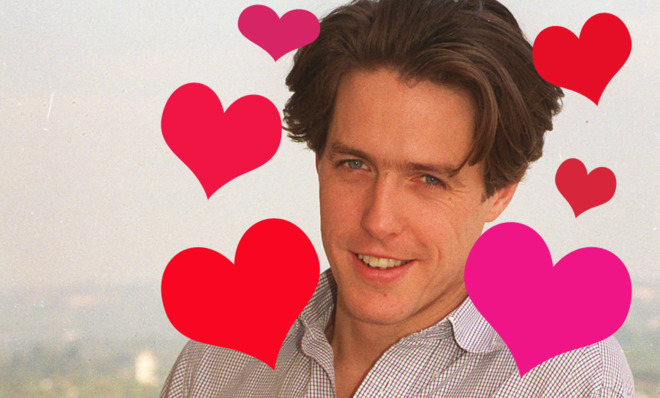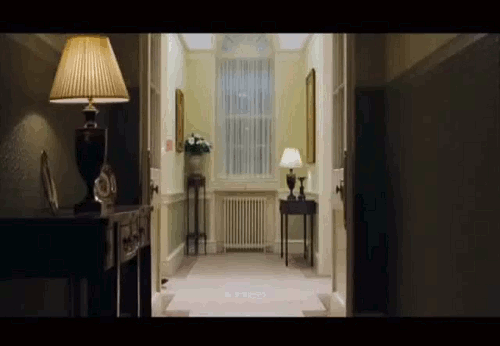Why I like Hugh Grant
It's not because of Love Actually


A free daily email with the biggest news stories of the day – and the best features from TheWeek.com
You are now subscribed
Your newsletter sign-up was successful
There has been a lot of chatter recently about Love Actually, the star-studded romantic comedy that is enjoying a nostalgia-fueled revival on its 10th anniversary. And it got me thinking about why I like Hugh Grant so much.
I should preface this by admitting that I am not a true Hugh aficionado. I know next to nothing about his personal life, other than that he once dated Elizabeth Hurley and cheated on her with a prostitute named Divine Brown. I have no idea what he's up to these days, though I did see his name pop up during coverage of Britain's phone-hacking scandal. I'm ashamed to say that I have not even seen The Englishman Who Went Up a Hill but Came Down a Mountain.
I know Hugh through a mere handful of roles. These include the bashful, self-deprecating Hugh of Four Weddings and a Funeral, who falls hopelessly in love with a beguiling American visitor; the bashful, self-deprecating Hugh of Notting Hill, who falls hopelessly in love with a beguiling American actress played by Julia Roberts; the Hugh of Love Actually, who manages to be bashful and self-deprecating while being the prime minister of the United Kingdom; and in a role that gives his oeuvre that crucial second dimension, the rakish, wonderfully wicked Hugh of Bridget Jones's Diary.
The Week
Escape your echo chamber. Get the facts behind the news, plus analysis from multiple perspectives.

Sign up for The Week's Free Newsletters
From our morning news briefing to a weekly Good News Newsletter, get the best of The Week delivered directly to your inbox.
From our morning news briefing to a weekly Good News Newsletter, get the best of The Week delivered directly to your inbox.
I should also acknowledge that none of these films are landmarks in the history of cinema. Love Actually, in particular, is a tawdry excuse for a romantic comedy that fails to meet even my low standards and contains some colossally embarrassing scenes that should make any self-respecting adult squirm violently in his or her seat. Indeed, the movie's saving grace is the storyline involving Hugh, which famously features the otherwise diffident actor dancing with abandon all over 10 Downing Street.

But unlike typical American rom-coms, which are barren of any redeeming qualities, the Hugh-starring variety are not without their charms. The foremost is that the characters are all such sad specimens of the human race. The group of friends in Notting Hill includes "the worst stockbroker in the whole world" and a failed restaurateur. Hugh himself is the proprietor of a travel bookstore that doesn't even sell John Grisham, much to the disappointment of its patrons. And the group's favorite parlor game involves competing to see who is the most pathetic among them.
"Sorry, always been a bit of an ass," an abject employee at Hugh's bookstore tells the dazzling Julia Roberts, a motto that fittingly describes the way the characters in these movies are constantly apologizing for existing in the first place. That they so readily accept their humble fate — in other words, their dreadful normalcy — is what makes them so uniquely relatable. The entire premise of Bridget Jones's Diary, after all, is that she is a failure in every single walk of life. Hugh may be a prime minister in Love Actually, but the role is principally defined by its inferior status to that of the American president.
In this respect, the Hugh milieu represents the polar opposite of New York, a city the English novelist Edward St. Aubyn described as being dominated by "aggressive fantasists." New York is a place where everyone you meet is not only dreaming out loud about launching an art gallery or starting an indie rock band, but relentlessly promoting the fact that they're thinking about launching a gallery or starting an indie rock band. It is the type of environment that fuels the neuroses on vivid display in Woody Allen's movies. Hugh, on the other hand, would rather vanish than assert his specialness, especially in the face of possible mortification. "Excuse me," Hugh's character Charles says in Four Weddings. "I think I better be where other people are not."
A free daily email with the biggest news stories of the day – and the best features from TheWeek.com
Hugh — and we are speaking here of the ur-character Hugh — traffics in a kind of realism. Ordinariness is taken to an almost painful degree. The characters in these movies appear to have no ambitions besides falling in love. This idea reaches apotheosis in About a Boy, in which Hugh plays an independently wealthy but completely unremarkable man who literally does no work at all. The exception is Bridget Jones, where Hugh plays a successful, Keats-loving publisher who is hounded by gorgeous women — and he's the bad guy!
For me, the enduring image from Bridget Jones is the opening sequence, in which the utterly depressed Bridget is watching reruns of Frasier on television while drinking an entire bottle of wine by herself — which just happened to mirror what I was doing when I watched the movie for the second (third?) time on cable sometime in my twenties. Bridget Jones, c'est moi!
However, if the main appeal of Hugh is the fact that he is grounded in a bumbling humility, it can't be denied that his movies are also operating in a high realm of fantasy. Bridget Jones, the lovably incompetent publishing assistant, lives in some kind of duplex in the middle of London. Hugh's modest friends in Four Weddings are constantly getting married in castles and cavernous cathedrals. In Notting Hill, Hugh the floundering bookstore manager owns an entire townhouse, which he shares with a mayonnaise-eating, proto-hipster roommate who has no discernible employment.
Which brings me to what I really like about Hugh: He is English. While these discrepancies would irk me in other movies — I can't even watch Woody Allen without moaning about the size of the apartments — in Hugh's films I can suspend disbelief because they are set in England, a country I have visited twice but that remains primarily a landscape of the mind. My brain won't object if Prime Minister Hugh randomly knocks on people's doors and sings Christmas carols. Hugh of Four Weddings could get married in Westminster Abbey and I wouldn't bat an eye.
Before you accuse me of being a typical American philistine, it's worth noting that foreign places have long been used as canvases for the imagination. Kafka wrote Amerika even though he had never been to the States; the book featured Lady Liberty holding aloft the broken hilt of a sword instead of a torch. Part of the contemporary Japanese author Haruki Murakami's appeal is the fact that his stories are set in Japan, long a screen on which to project all kinds of weird Western fantasies.
In my case, England is not only a physical space on the globe with a long history, but a place where fictions occur. England is where Walter Hartright once encountered a mysterious woman all dressed in white on the road outside London; where Pip met Miss Havisham and Estella in a dilapidated old house; where Heathcliff and Catherine fell passionately and tragically in love. This dynamic, this layering of imagination and place, partly explains the appeal for non-British audiences of the Harry Potter series, whose aura of magic stems not only from the magic itself, but the wildly idealized setting of a traditional English boarding school — a setting that is firmly embedded in our artistic-cultural memory.
And how does Hugh fit into all this? Why, he's the prime minister who retains his decency. He's the sad sack who gets the girl anyway. He's a pure dream.
Ryu Spaeth is deputy editor at TheWeek.com. Follow him on Twitter.
-
 The broken water companies failing England and Wales
The broken water companies failing England and WalesExplainer With rising bills, deteriorating river health and a lack of investment, regulators face an uphill battle to stabilise the industry
-
 A thrilling foodie city in northern Japan
A thrilling foodie city in northern JapanThe Week Recommends The food scene here is ‘unspoilt’ and ‘fun’
-
 Are AI bots conspiring against us?
Are AI bots conspiring against us?Talking Point Moltbook, the AI social network where humans are banned, may be the tip of the iceberg